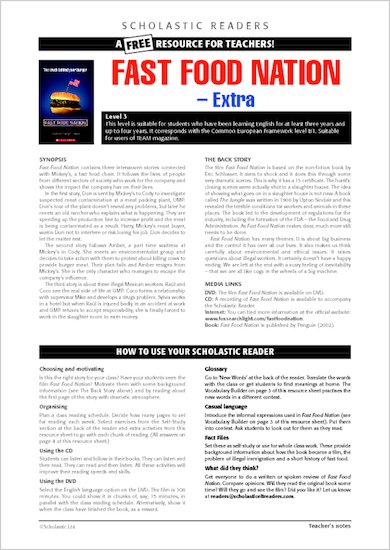

The article became the basis for Fast Food Nation. ".In 1998 he wrote a two-part investigative report on the fast-food industry for Rolling Stone. After earning a bachelor's degree in 1981, Schlosser conducted postgraduate studies in British history at the University of Oxford."

After graduating, he entered Princeton University, where he edited the school's humor magazine, wrote plays for the Triangle Club, and studied literary journalism with the Pulitzer-winning writer John McPhee. Schlosser was raised on the Upper East Side of Manhattan and attended the exclusive Dalton School. His father, Herbert, was the chairman of the NBC television network. ".Schlosser was born in New York City on August 17, 1959. "Book reviews: Fast Food Nation: The Dark Side of the All-American Meal." Journal of Consumer Affairs 2(2001):399. The subjects of these stories range from Ray Kroc, the man who built McDonald's, to Kenny Dobbins, a packing house worker whose health was ruined in a series of accidents over his sixteen years of employment." Schlosser uses his skill as a journalist to bring together relevant historical developments and trends, illustrative statistics, and telling stories about the lives of industry participants. In successive chapters, Schlosser details the stages of the fast food production process-the farm, the slaughterhouse and processing plant, and the fast food franchise itself.

The book focuses on the all-American meal, hamburger and french fries, and offers some jolting revelations about it.

Both the author and his book have attracted a great deal of media attention. In his book, Fast Food Nation, Schlosser examines the social and economic consequences of the operations of one particular segment of the American food system: the fast food industry. But, as author Eric Schlosser points out, it is an amoral system, which has negative consequences along with its positive ones. The pursuit of these goals has brought many benefits for consumers. It has become a system organized to produce large volumes of highly standardized products as cheaply and efficiently as possible. ".The American food system has undergone monumental changes in the past five decades.


 0 kommentar(er)
0 kommentar(er)
